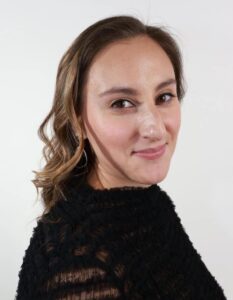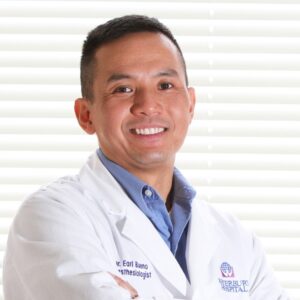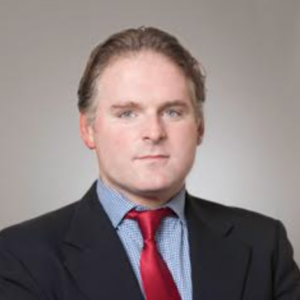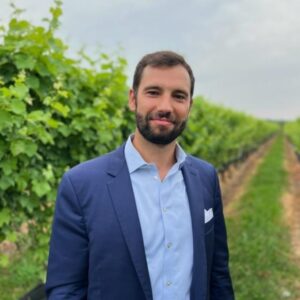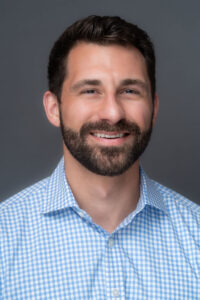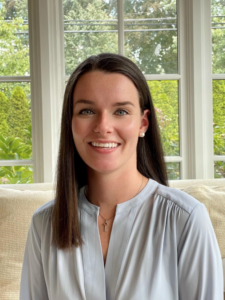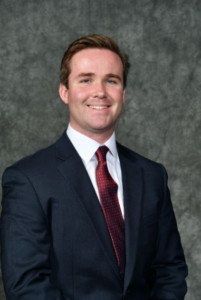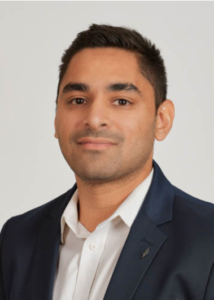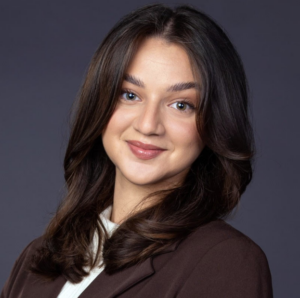
Name: Isabella A. Giaquinta
Class Year: 2023
Organization Name: Lumanity
Title: Senior Associate
1. In one sentence, what does your job entail?
In life sciences consulting at Lumanity, I partner with top global pharma companies and innovative biotechs to shape commercial strategy, identify market opportunities, and refine product positioning—with a personal focus on the rapidly evolving cell and gene therapy space as well as autoimmune and inflammatory diseases.
2. What planned and unplanned events connected you to your industry and your first employer after Holy Cross? How did you learn/decide it was a good fit for you?
Growing up, I watched my mom, Diane Giaquinta, with a mix of awe and confusion. I always knew she was important and that what she did was important, but had little to no clue what her role in pharmaceutical consulting actually entailed. Over time, I learned just how remarkable her career truly is—she’s held several influential leadership positions, including serving as the President of the Academy of Managed Care Pharmacy (AMCP), Vice President of Health Systems Management at Bristol Myers Squibb, and currently as the President of StrategiCare, the consulting firm she founded. Her expertise in managed care pharmacy and her ability to drive industry innovation had a lasting impact on me, even if I didn’t fully grasp it at the time.
I always had an interest in healthcare, but as I got older, I realized that being a doctor wasn’t the path for me. I wanted to stay in the field but was drawn to the business and strategic side. During my time at Holy Cross, I connected with people who worked at Clarion, which later rebranded to Lumanity, and it was through them that I learned about opportunities in life sciences consulting. I applied and was accepted into their summer internship program, an experience which solidified my decision to pursue this career path. After completion, I was fortunate to receive a return offer, and joined Lumanity full-time after graduation.
As I continued to grow professionally, I came full circle and had the opportunity to lead the very same summer internship program at Lumanity this past summer. It was an incredibly rewarding experience to mentor the next generation of interns, helping them explore how life sciences consulting could be a perfect fit for them, just as it had been for me. Looking back, I am grateful for how my mom’s influence, my academic experiences, and my professional growth have all come together, deepening my understanding of the healthcare industry and motivating me to contribute to its continued evolution.
3. What were you involved in when you were on campus?
At the College of the Holy Cross, I was involved in a range of academic and extracurricular activities that shaped my experience. I participated in XCHROM, supporting initiatives to promote gender equality and women in STEM. Through SPUD, I worked with Girls C.H.O.I.C.E., tutoring teenage girls from Worcester public schools at the YWCA. Additionally, I spent three years as a Relationship Peer Educator (RPE)—an experience that was especially meaningful as we worked to foster open conversations about sexual violence/assault on campus, emphasizing consent and promoting healthy relationships. I was also part of the Ski Team, where I enjoyed racing slalom, team road trips, and après-ski traditions!
Academically, I was fortunate to conduct research with Professor Tsitsi Masvawure, applying a mixed-methods approach to study the impact of COVID-19 on AIDS Project Worcester, an organization providing healthcare and psycho-social services to marginalized populations. I also worked with Professor David Damiano, mathematically modeling the effects of COVID-19 vaccination and the Delta variant on SARS-CoV-2 incidence among healthcare workers and the broader community. Then, in my senior year, I was honored to be named a Fenwick Scholar, with Professor Shannon Stock as my advisor. My Fenwick Project was a statistical research study on refugee/migrant health outcomes in collaboration with the Immigrant and Refugee Health Center at Boston Medical Center.
4. What was your major and how did it affect your career decisions?
I was originally on a pre-med track but quickly realized that path wasn’t the right fit for me. I decided to pick up a math major after talking with Professor Gareth Roberts and Professor Cristina Ballantine. They helped me see how my growing interest in data and analytics could be applied to healthcare. As a math major I aspired to develop a strong quantitative background that could allow me to approach healthcare challenges from a different angle—through strategy, analytics, and optimization rather than direct clinical practice. This even led me to spend the entirety of my junior year taking mathematics courses at the University of Oxford, including a course on mathematical modeling in biology.
At the same time, I still wanted to keep healthcare as a focus in my studies. So, I added a Health Studies major, which allowed me to explore the broader implications of healthcare systems, policies, and strategies, and better understand the industry. Additionally, I pursued a minor in statistics, which further solidified my analytical skill set and reinforced my interest in using data-driven insights to solve problems in the healthcare space.
This combination of mathematical rigor, healthcare knowledge, and statistical analysis helped shape my decision to pursue a career in life sciences consulting. I found that my skill set was uniquely suited to this field, where understanding both the quantitative side of healthcare and the broader systems at play are key to making strategic decisions. Looking back, this shift in my academic focus not only shaped my career trajectory but also allows me to bring a well-rounded perspective to my everyday role at Lumanity.
5. What are one or two skills that you developed at Holy Cross that you use in your work?
One skill I developed at Holy Cross that I use daily in my work is the ability to think critically and approach problems from multiple angles. Through my studies in math, health studies, and statistics, I learned to break down complex issues into manageable parts, analyze them, and consider their broader implications. This mindset has been essential in life sciences consulting, where I regularly assess market dynamics, evaluate product strategies, and navigate complex healthcare landscapes.
Additionally, my liberal arts education strengthened my research and reading comprehension skills, which have been invaluable in consulting. In this field, the projects we work on can vary greatly, and you often have to become an “expert” in a new topic in a very short period of time. Holy Cross trained me to quickly digest new information, synthesize key insights, and apply them effectively—skills that are essential when diving into unfamiliar areas and providing informed, strategic recommendations.
6. What advice do you have for students on campus today?
My advice to students on campus today would be to embrace the opportunities to explore diverse interests and take risks in your academic and extracurricular choices. College is a time to figure out what excites you, and sometimes the best path forward isn’t the one you initially expected. Don’t be afraid to pivot—whether it’s shifting majors, taking on new challenges, or getting involved in different activities. You never know where a random conversation or project might lead you.
Also, take full advantage of the people around you—your professors, peers, and alumni network. They can offer unique perspectives and guidance that may shape your career in ways you don’t anticipate.
